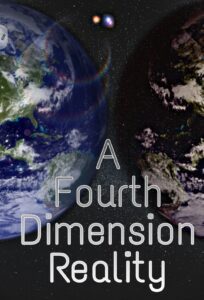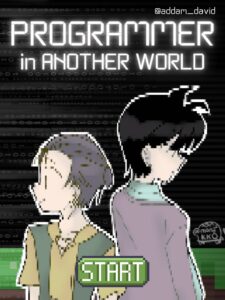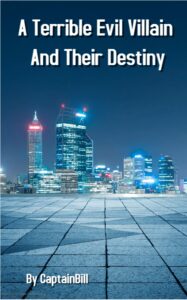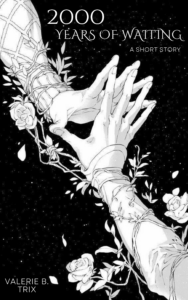I was never fond of school and spent most of my school years dreading the next day for reasons I couldn’t identify. For context, I grew up in the USA and attended a Catholic-Christian Sunday school/primary school before spending my compulsory education years at a public school district (ages 6-18). I was not bullied (to my understanding), nor was I given the gifted student treatment. I had many one-off extracurricular courses that revolved around drawing, music, craftsmanship, engineering, robotics, and martial arts. My family had little to no visible financial difficulties and lived in the suburbs of California. I had good and steady grades and took several honors and AP courses once they were available for me.
But, as good as things were, I wouldn’t have called my personal experience in school good or fulfilling at all. I’m sure that everyone in the administrative aspect of the school did their jobs well, even if I was nitpicky as a student, but even if they were doing their jobs to their best abilities and fulfilling their side of requirements, that didn’t do much for my enrichment.
It was just like being a product on the conveyor belt. I was getting all this information, being molded into this particular shape, but none of it was solidifying, and instead I felt dread for when I would eventually be out of the system, anxiety for whatever sort of future there was outside of school. Because it was supposed to get better? Because I would have more freedom? Anything was better than being in school, so the former didn’t mean much, but in terms of the latter, I was already being told that I was very free and could have been doing things outside of leisure that would have better prepared me for my future — but then, I’d think, what was school for? Learning? Why doesn’t it feel like I’m learning? Why does the learning stop at tests? Why can’t we spend more time on the things that I find interesting? Are the things that I like not important?
Obviously not; moreover, I can’t just live in a world that revolves around my interests. Things are interconnected, and so it is more efficient to learn about things in a more expansive way, in a more guided way.
But then, I’d counter, since things are interconnected, wouldn’t it be more beneficial to learn as things come up? Won’t I have a natural curiosity and inclination to learn if I encounter things that intersect with my interests? Is that not the more efficient way to learn? To explore proactively, and to slowly discover the logic we use to comprehend it?
It’s a dream to think like this, I think. For some reason, it seems foolish to expect this sort of freedom in education. Freedom, how can one achieve it? Only if someone else provides for it (if we are to have a society, in any case). Who will provide the materials for my education? How will I be provided access to these materials? How can we make such a concept come to life in a way that also benefits those who are not participating in education?
Oh yes: since it’s a dream, of course I’ll be writing about it.
In Land of the Sun, the land of Aren is supposed to be a land of absolute whim and collaboration. A made up land, a made up society where authority and power is only relevant in the sparse corners where people are reluctant to not have it. In other words, the common people, who I’ve boldly called the timawa, are absolute equals who live with the assistance of maharlika, the military and labor force, and tagapayo at hukom, the main management figures of the regions.
I ran into the issue of compulsory education while writing about the governmental structure of Aren — an Areno Manifesto if you will — and ended up with this loose education system that is more like a village raising a child than a government setting standards in education.
I don’t know what to call such a system, but I do know that I am not the first to have thought of it. It is just that the systems that I am presenting here are theoretical and have no intention of being implemented anywhere. I cannot say whether our world can accept such a system, after all, and I am not concerned in being the person who solidifies it. I shall write a story that features it in hopes of inspiring that person or persons who are.
In my notes, I have a general life timeline for the average Areno that goes as follows:
Dependant → Independant → Cooperative → Society
The age of dependance should be from birth to adolescence, or late adolescence and early adulthood (with the eldest being around 25 years old). This does not just take into account the individual’s dependance on another person, but also the expected dependance on the individual in the future. While the first few years are generally free and vary in rigidity according to family, there is also an expected essence of care and attention that is funnelled into these groups, so ensure that their wonder and appreciation in the world is well founded. What you invest is what you get.
And so, within the dependant age, I have a tentative outline:
Childcare → Practical → Theory | Maharlika → Travel | Workforce
Childcare implies the existence of child-oriented groups who care for children in the village. They should ensure that the children are being fed, have a safe access to all of the village, and can recognize basic social signs and routines. The people who are responsible for this group may be wandering artists or scholars, people with a tie to the community, but also less responsibility towards it. People who are grounded and have the time to treat children with respect. There is no need to impart moral lessons or deliberate teachings, because children would naturally pick these things up as they explore humanities. Of course, I also expect artists and scholars to be knowledgeable in folktales and art, so there should be more than just acceptance to encourage and entertain these children.
Practical introduces the types of careers within the world. As children are weaned from wonder and leisure, they should be encouraged to explore their direct surroundings and neighbors. If they express interest in a trade or similar, they should be able to experience it. Of course, those who provide their spaces for practical experiences must anticipate spoiled goods and failed products, and should not expect that these children work for themselves. They are just to introduce their craft and hopefully gain a follower by the end of the instruction.
Then comes the first tangible choice that the Areno may face: to either pursue theoretical education or train the body through maharlika lifestyle. Up to this point, martial arts is like Sunday mass, an event where everyone regularly participates and meditates through as a community. But after reaching a certain age of ambition, one can choose to fully immerse themself into the maharlika life and serve as a local labor force as they train, or find a mentor to learn under and debate theoretics. After making this choice, there are few accounts of switching from one path to the other. The reason for this is unclear, but there has been a distinction between theory and maharlika for as long as Aren has been united (this detail was built on a whim of mine — there really is no logical explanation as to why people don’t feel flip-floppy here).
Then, after one feels fulfilled or is urged by their mentors, the individual is eligible for entering the workforce, or traveling the country to expand their horizons. In this era, people will solidify their place in the community, growing from a dependant person to an independant one.
So begins the independent phase of life, which may be outlined as such:
Travel | Workforce → Leadership(1) | Maharlika Laki(1) | Business(2)
At this time, in the independent phase, prestige is more valued than age, and sometimes even experience. Why? Because a name well-known is more trustworthy. If one is to be a leader, they must be recognizable and have a rallying behind them. Their advisors and community may be their biggest backbone, but it is also important for them to serve as a mascot. As a voice that cumulates that of their community.
The enlightenment of independence occurs during one’s travels or time in the workforce. After having their fill and helping others pass the phase of dependence, they may decide to hold a greater responsibility in their community: either a role in leadership, maharlika laki, or business.
Leadership opportunities are most often delegated by Hukom, who are the direct stewards of the ten major cities of Aren. They or their subordinates may host workshops where one can learn to balance the responsibilities of a leader and learn communication and comprehension skills related to leadership, skills more focused on getting an understanding for a community’s wants and needs before encroaching on how to achieve them. Real tasks that require leadership to oversee and manage them are offered, and one may make a name for themself in this way.
There is also the opportunity to join the maharlika laki, otherwise dubbed the royal maharlika by the CU. Previously, individuals only had the choice of joining the local maharlika and serving their direct home community, but after joining the maharlika laki, one will not only have opportunities to further hone their arnis, but also learn about philosophy and conflict avoidance/resolution. Members of the maharlika laki are absolved of their family affairs and encouraged to temper the self as they travel the country as needed, serving the people of Aren and its affairs. Unlike soldiers of the CU, members of the maharlika laki are most valued by their autonomous reasoning ability and devotion to martial arts, not the ability to follow orders.
Finally, one may also choose to develop themselves in the business category, and learn the best method to distribute resources and how to encourage innovation. A business mogul in Aren is one who has many resources to their name thanks to their meticulous cultivation of connections and product distribution. Their skills in management must be pristine and accommodating towards those who produce under their assistance. They may have started as a producer themself and thus have some understanding on what a producer needs and how a producer may flourish. As opposed to the path of leadership, however, those in the business path are more concerned with their direct community, and not the overall status of Aren (although it does come into play).
And so opens the cooperative phase, where one finds themselves either immersed in their work and play, or else strategizing the best way to deliver resources and develop culture in the life of Arenos. There are only two optional categories in this phase, neither of which are necessary to the process of living in Aren:
(1) Tagapayo | (2) Hukom
Tagapayo translates roughly(in my understanding) to counselor, a person who can offer feedback to concern and has a wide area of reference to help another. In Aren, tagapayo are people who live with the people but have regular meetings with the court of Aren in order to help facilitate conversation towards the Areno people’s concerns. They provide both context and valuable opinions for the court even if their involvement is not explicitly required, much like the role of a witness in a trial.
Hukom translates roughly(once again, in my understanding) to governor, a person responsible for a certain region of a land and manages it in relation to other regions. In Aren, the hukom are limited to 10 persons, with one person for each major city. Their day to day activity involves managing the city’s resources and relationships with the other cities so that the usual way of life may be sustained or enriched. They may also organize cultural events or similar in order to celebrate life and preserve culture.
At the end, an individual will always become a part of society, which is the final identifiable phase of life in Aren. Similarly, the only “option” left in the timeline I wrote is timawa, or common folk. Life repeats, and the society is solidified.
Should I mention that this model is possible largely due to the fact that Aren does not use currency nor bartering? Nah, I’ll save that for another time.







